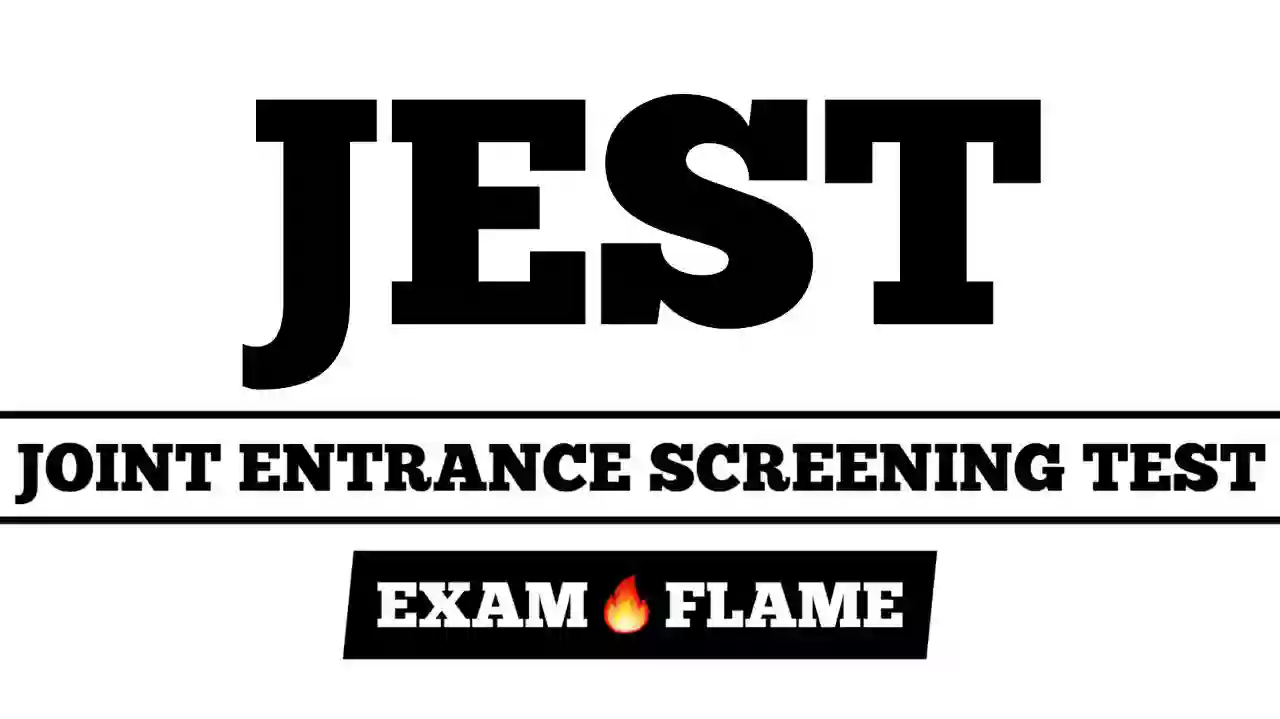JEST (Joint Entrance Screening Test) is a national-level entrance exam conducted by the TIFR (Tata Institute of Fundamental Research) for admission to its Ph.D. and Integrated Ph.D. programs in Physics. The JEST exam is considered to be very competitive and difficult, as it attracts many highly qualified candidates from across the country.

The JEST exam typically consists of two parts: a written examination and an interview. The written examination is held on a single day and tests the candidate’s knowledge of theoretical physics, experimental physics, and mathematical physics. The written examination is followed by an interview, which is held at TIFR, Mumbai, or one of its satellite centers.
The JEST exam is usually conducted in the month of February and the results are usually declared in the month of April. Candidates who qualify the JEST exam are eligible to apply for Ph.D. and Integrated Ph.D. programs in Physics at TIFR and also other institutes participating in JEST.
It is important to note that JEST is a very difficult and highly competitive exam, and requires a lot of hard work, dedication, and preparation to pass. Candidates should start preparing well in advance and must use a variety of resources such as books, previous years question papers, and mock tests to be well prepared for the exam.
JEST Syllabus 2023 PDF Download
Download the Latest curriculum/Syllabus of JEST 2023, the links are given below:
| S. No. | Subjects | Syllabus PDF |
| 01. 》 | Physics | Click Here |
| 02. 》 | Computer Science | Click Here |
| NOTE:- If you want anything else like e-books, practice questions, Syllabus, or any exam-related information, kindly let us know in the comment section below. |
JEST Exam Pattern
The JEST exam pattern typically consists of two parts: a written examination and an interview.
The written examination is held on a single day and tests the theoretical, and experimental knowledge of candidates. The written examination is usually of 3 hours duration containing 50 Multiple Choice Questions of 100 marks.
The Questions are divided into three sections,
- Sections A contains 15 Questions each carrying +3 marks for correct answers and -1 mark for incorrect answers.
- Section B contains 10 Questions each carrying +3 marks for correct answers and no marks for wrong answers.
- Section C contains 25 Questions each carrying +1 mark for right answer and – 1/3 (-0.33) marks for wrong answer in this section.
The written examination is followed by an interview, which is held at TIFR, Mumbai or one of its satellite centers. The interview is usually conducted by a panel of experts from the relevant field of physics. The interview is designed to evaluate the candidate’s understanding of the fundamental principles of physics, as well as their ability to think critically and solve problems.
Benefits of Analyzing JEST Exam Syllabus before the Preparation
Analysing the syllabus of an exam is an important step in preparing for the exam, as it helps to understand the scope and content of the exam. There are several benefits to analyzing the syllabus of an exam:
- It helps to identify the key concepts and topics that will be covered on the exam.
- It allows you to prioritize your study time and focus on the most important areas.
- It helps to identify any gaps in your knowledge so that you can fill them before the exam.
- It allows you to create a detailed study plan and schedule that will help you to stay on track and meet your study goals.
- It helps to identify any areas that you may find challenging so that you can seek additional help or resources to prepare better.
- It helps to set realistic study goals and expectations.
- It helps you to prepare mentally and emotionally for the exam.
Overall, analyzing the syllabus of an exam is essential for effective exam preparation and helps to maximize the chances of success.
Last Words:-
It is also important to note that the JEST exam is designed to test the candidate’s understanding of the fundamental principles of physics, rather than just their ability to memorize formulas or facts. Candidates should focus on developing a deep understanding of the concepts and principles covered in the syllabus, rather than just trying to memorize facts or formulas.
